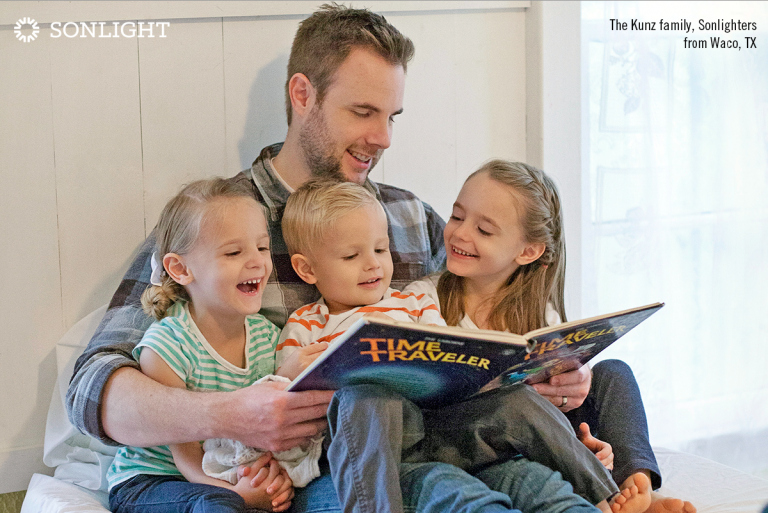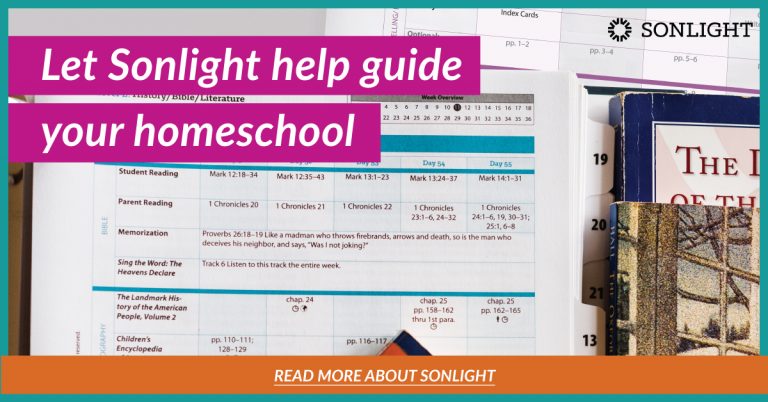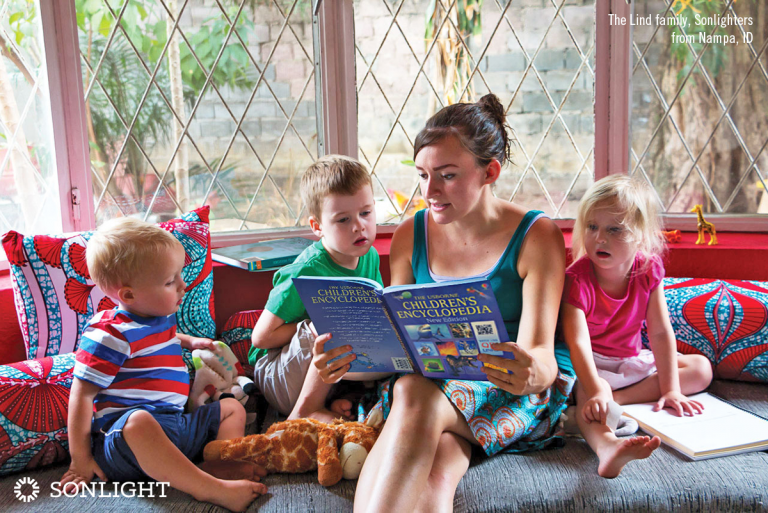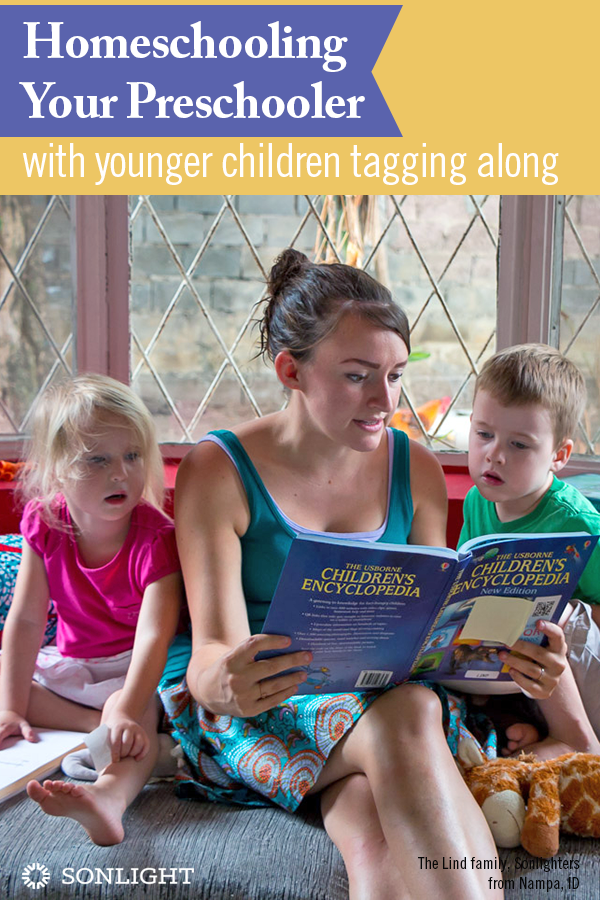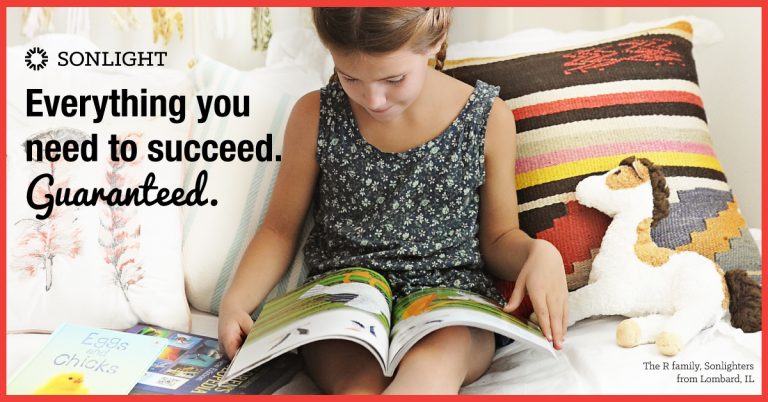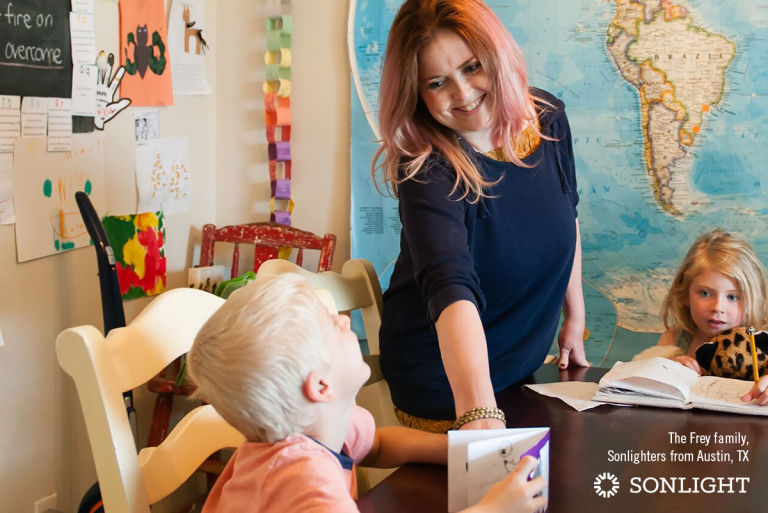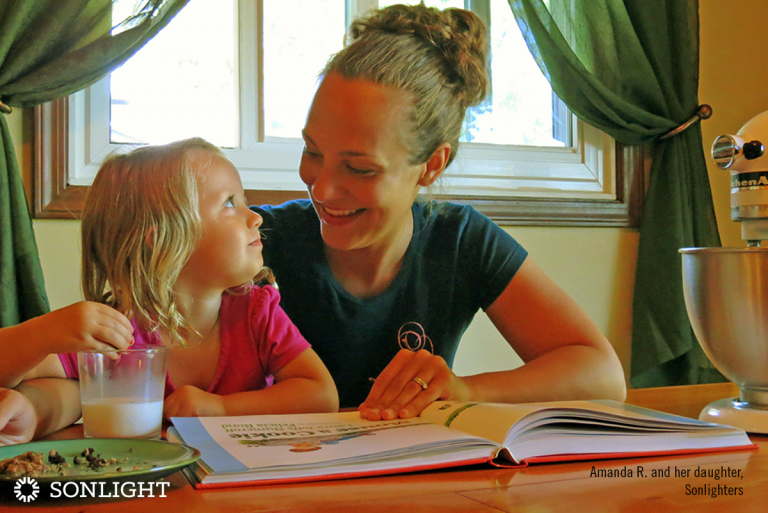
Are you a person who gets overwhelmed on Pinterest? Do the crafts, decorating tips, elaborate desserts, and backyard landscaping make you feel somehow inferior as a parent? Fortunately you don't have to have a Pinterest perfect life in order to show your family you love them. Homeschooling naturally offers many ways to intentionally spread the love in your family.
For me, showing love sometimes felt as natural as breathing. At other times, my kids had pushed all my buttons, I felt exhausted, and I had to seriously pray for God's help to still show love. No matter where you are on that spectrum right now, here are a few ideas of how to be intentional with sharing love in the midst of your homeschool days.
1. Savor Read-Aloud Times
Take a deep breath and enjoy your times reading aloud with your children. If they're still little, notice the feel of their small bodies in your lap. Take this quiet time with them to remember how much you love them and how grateful you are for them.
2. Learn About the Five Love Languages and Use Them All
If you don't know about the five love languages, I highly suggest you look into it. Adults can usually identify the top one or two ways they prefer to receive love, but it's harder to identify in children. It's important we "fill up their love tanks" with all five languages:
- words of affirmation
- acts of service
- gifts
- quality time
- physical touch
We can incorporate all of these into our homeschool with a little thought. For example, Read-Aloud time naturally works in two love languages: physical touch and quality time.
3. Notice Their Interests and Nurture Them
What grabs your children's attention right now? Are they enthralled with American pioneers, or butterflies, or electrical circuits? Take them to the library to find books on the topic. Find appropriate videos online to watch. Let them develop their own crafts or projects on the subject. These small gestures let your children know that what they think matters.
4. Pay Attention to Your Own Needs
You will have much more to give your family if you are also taking care of yourself. You really do need basics like sleep, healthy food, and plenty of water. Don't be afraid to ask for help and to make time for little things that rejuvenate you (perhaps a bubble bath once a week, an occasional walk by yourself, or a coffee date with a friend). Our Inspire 25 event with Heidi St. John and Crystal Paine offered some great advice in this arena. Listen to the recorded event here.
5. Truly Listen to Your Children
I know how easy it is to go on autopilot when your kids are chattering. But try to take time to stop and really hear them. Homeschooling with Sonlight provides many opportunities for good conversations about things that matter, but you can't always predict when those conversations will happen. When your child asks an important question out of the blue, recognize it as a precious opportunity to listen and talk with (not just at) your child. I made it a point that whenever one of my children came into the room, I would put down what I was doing and focus on whatever they had to say. It's easier said than done, but the rewards over the long haul are priceless.
6. Help Siblings Show Love to Each Other
A huge benefit of homeschooling is strengthened sibling relationships. Sharing so much time and so many experiences together can build deep bonds. But it can also provide lots of room for conflict to develop. So take time to teach your children how to resolve their conflicts. You can role play what to do when a little sister feels annoying, or when your kids can't agree on what game to play. This training can pay huge dividends in the years to come.
7. Apologize to Your Children
We have all messed up in parenting. I certainly have. We have all lost our temper, acted selfishly, or mixed up our priorities. When you have sinned against your children, give them the enormous gift of modeling repentance. Acknowledge what you did wrong and genuinely apologize for it. This helps restore relationships and it teaches children that we don't have to be perfect in order to love each other and grow.
8. Remember Your Spouse
During our busy homeschooling years, John and I made it a point to go on a walk together every night, just the two of us. What a difference this small habit made in our relationship! Also, since John's primary love language is physical touch, I would get up and greet him with a kiss whenever he left the house or returned. We would hold hands while we prayed, and I would make it a point to hold his hand or put my arm around him at church, or put my hand on his thigh when he drove. Small gestures like this helped him receive love the way he was designed to. Again, the Inspire 25 event gave some great ideas to help homeschoolers stay connected to their spouse.
And remember, we have love to give to others because God has first loved us. You don't have to give from an empty tank. God's love for you is extravagant and real. I pray you can live from that reality as you serve your family in this great calling.


